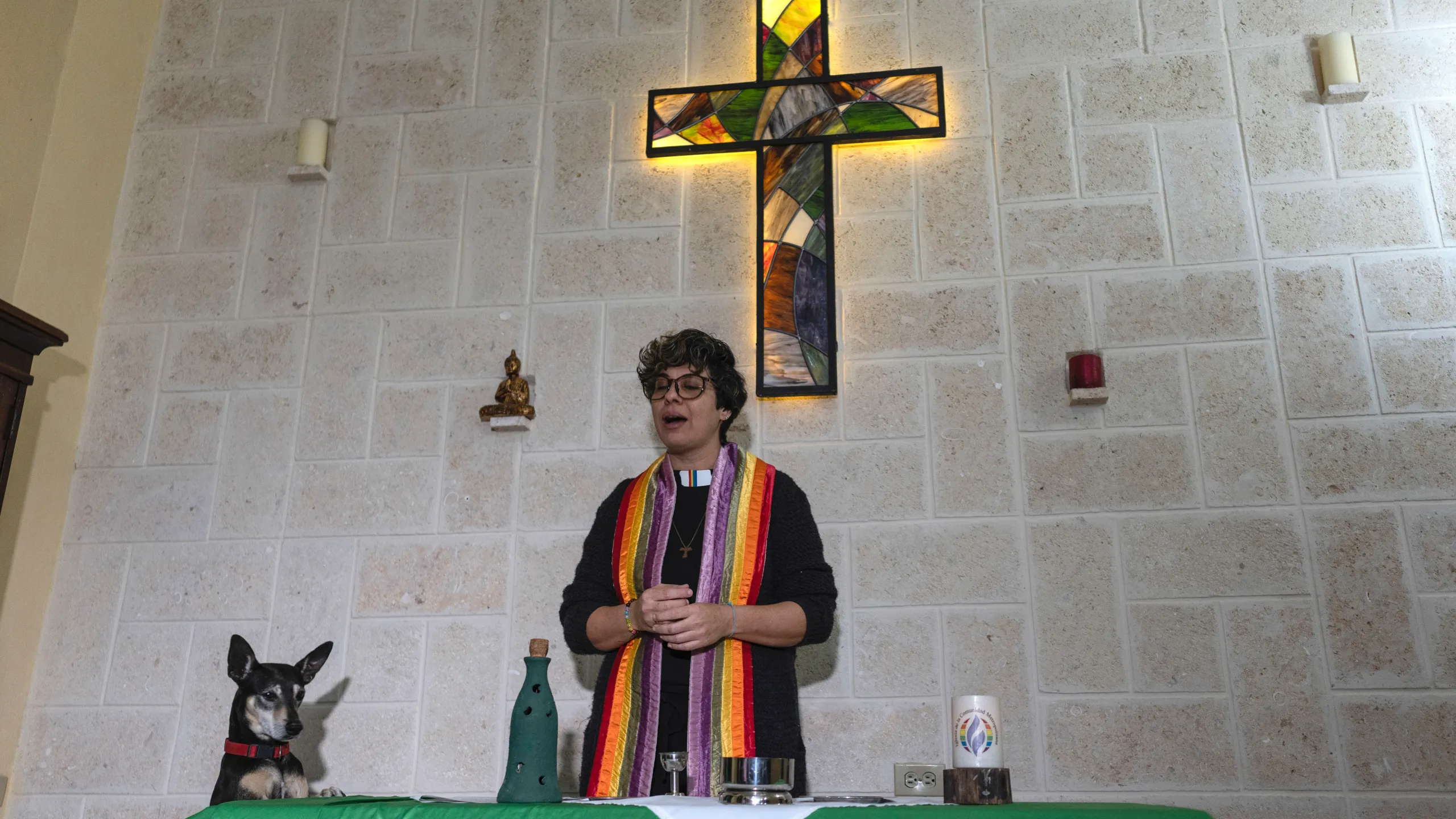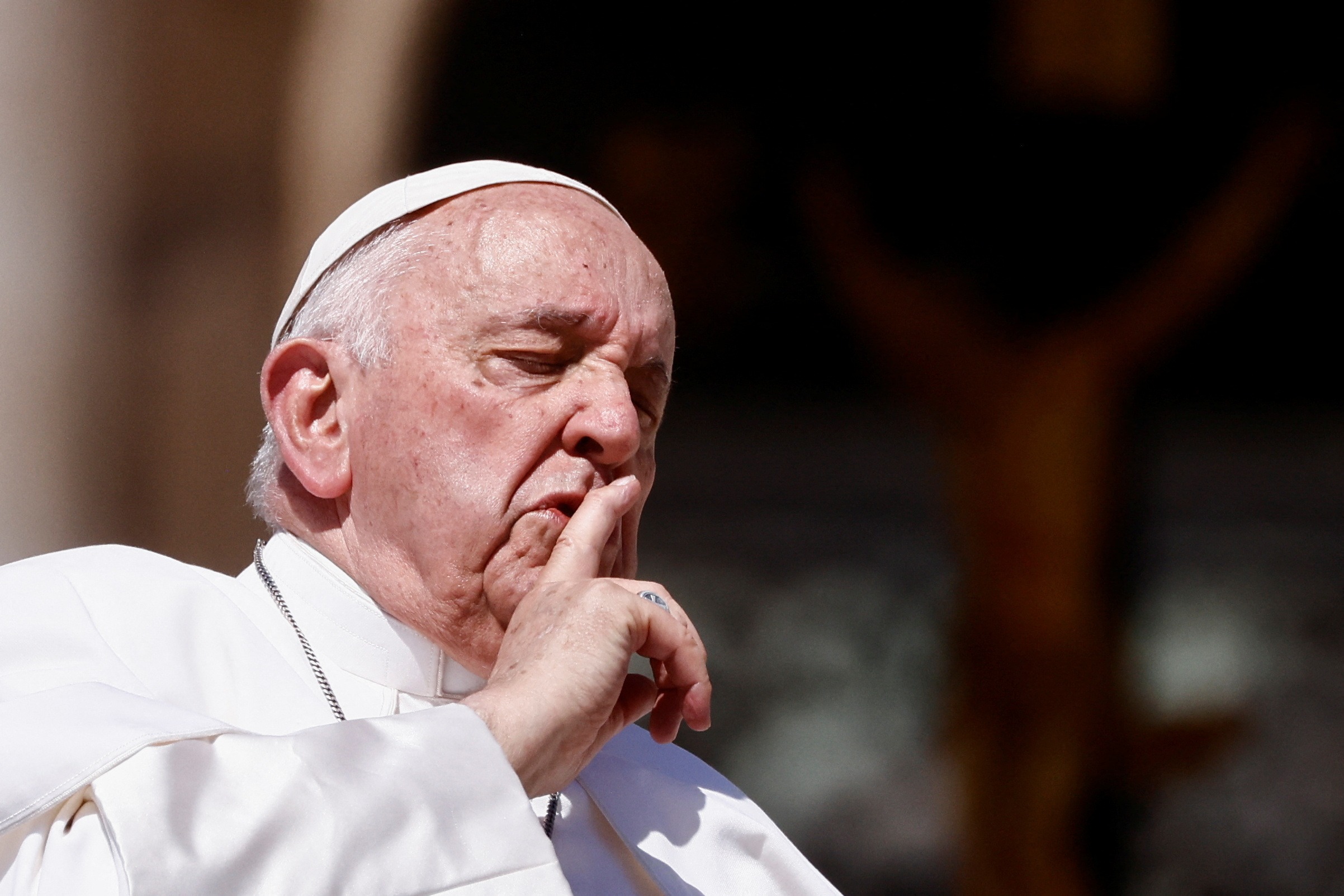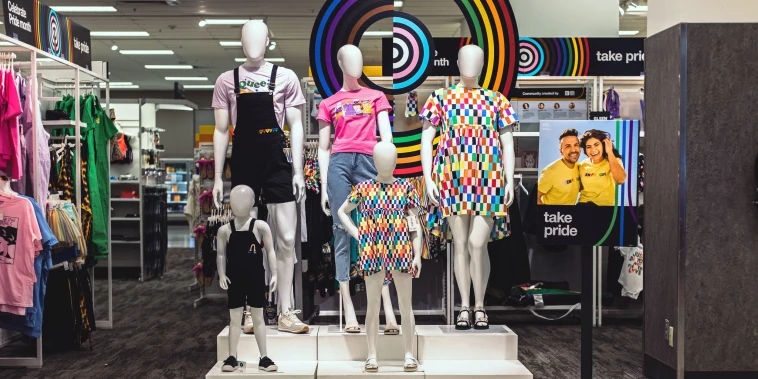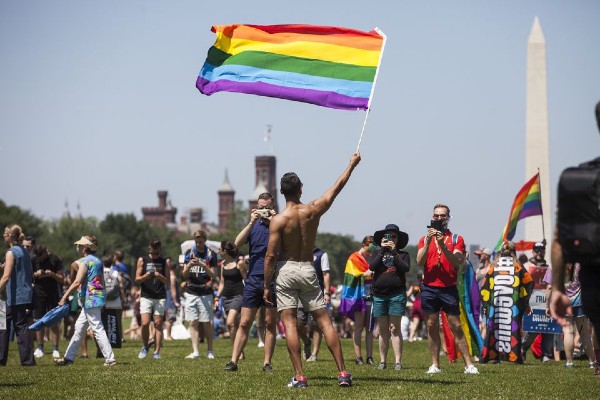James Bushe made history after he became the first newly-qualified pilot in Europe living with HIV. James, who was diagnosed with HIV nearly six years ago, previously remained anonymous and used a pseudonym on Twitter to write about his struggles to become a pilot after rules prevented him from training as he couldn’t get a medical certificate. However, the […]

James Bushe made history after he became the first newly-qualified pilot in Europe living with HIV.
James, who was diagnosed with HIV nearly six years ago, previously remained anonymous and used a pseudonym on Twitter to write about his struggles to become a pilot after rules prevented him from training as he couldn’t get a medical certificate.
However, the Civil Aviation Authority (CAA) overturned the ruling and James – who has been flying with Loganair training captains since November – decided to go public to challenge the stigma around people living with HIV.
The CAA regulations said that pilots who were already qualified could continue to fly if they contracted HIV, however, in a ‘catch 22’ situation, a HIV-positive person couldn’t get the accreditation needed to start the training to become a pilot.
Now, James speaks exclusively to Attitude about why he decided to reveal his identity and why he wants to eradicate stigma surrounding HIV.

Why was it now that you wanted to reveal your identity?
It was always on my mind that I wanted to come out, from want of a better expression, and I wanted to sort of follow up the story and I think if I had done that as Pilot Anthony, it wouldn’t have done anything positive in terms of tackling the stigma associated with people living with HIV.
I think it would have perpetuated the stigma if I carried on tweeting anonymously and people would say, ‘Why did I do this anonymously. Is it because he is ashamed of his HIV status?’
And I thought, ‘No, I’m not and I shouldn’t be nor should anyone else.’ I wanted to share the stories to get the message out there that anyone that wants to become a pilot and are living with HIV can do it.
Anyone that is facing discrimination because of their status can do it. The biggest thing was to do it as me and tackle the stigma associated with people living with HIV.

You did have the anonymous Twitter account, why did you start this campaign anonymously? Was it out of fear you could lose your job?
It was to not have my HIV status pay any part of that process of training or selection.
And obviously because I had to fight for the right to train in the first place and get the licence, I wanted to make sure there would be no barriers in that sort of recruitment process that followed.
I guess in a way, it was out of fear that my HIV status would have impacted that process.
You were blocked from accepted a place on easyJet’s pilot training scheme back in 2017, due to the CAA’s stance on candidates with HIV, that must have been a devastating blow for you.
I was absolutely gutted because when I was first diagnosed with HIV back in 2014, I was determined it wasn’t going to play a role or have a negative impact on my life and this was the biggest hurdle that I have faced.
And to be told that I am fit and healthy and would otherwise be given a medical but because of your HIV status, it was devastating.
It is the one thing that I have wanted to do since I was a child and to be told that not only can’t you do this, but actually you can’t do this because of your HIV status. It was gut-wrenching.
Was this your first time that you had heard about the CAA’s stance on HIV candidates?
I had an inclination that their stance, not just in regards to HIV, but by giving the special type of medical that I would have needed – so the medical which has what we call a multi-crew limitation meaning that I basically always need to fly with a co-pilot.
I knew that they didn’t give those out to people who didn’t hold a commercial licence already. At the time, I didn’t hold a licence.
But what I thought was that actually if I present the CAA evidence that someone living with HIV didn’t even need one of these medicals with a limitation on it, that HIV then wouldn’t cause a problem.
I thought that it was something that I was going to get around at the early stages and I was knocked back at every stage of the process.
I appealed to the CAA and through the European regulator back in 2017 and each time it got to the next level, the answer was still no.
It’s crazy that the CAA even still had this stance. HIV is no longer a death sentence and I cannot see why it would jeopardise something being a pilot.
Aviation in itself is a safety critical industry and therefore we always take that approach to everything we do.
With that in mind, the evidence that the CAA had and the European regulator still currently use actually, is based on studies that were taken in the late 1990s and subsequently updated in the mid 2000s.
So we are talking about a catalogue of evidence with regards to HIV that is at least 10 years out of date and within that evidence, what was stated, was that someone with HIV has a risk of not being able to effectively fly the aeroplane at some point in time while flying and that you may become incapacitated.
And it was because of that reason that they said, ‘We will only give you a medical if you fly always with a co-pilot and actually we can only give those types of medicals to people that already hold a licence. What we won’t do is allow people who we consider to be from a ‘risk group’ to enter the profession’.
That was the stance. So, the next stage for me is to – I am now allowed to have the medical limitation – but the next stage is to trigger a full review and to get the full review of the legislation and the new evidence because we know that with someone of successful treatment, there is no risk of neurocognitive impairment, so there is no chance of someone living with HIV to jeopardise a flight’s safety.
So the next stage is to change the rules completely so that someone with HIV is consider in exactly the same way as someone that isn’t living with HIV.

What about cabin crews or were the limitations solely on pilots?
Within Europe, it’s just pilots so cabin crews are perfectly fine. But in other parts of the world it’s not.
So in South Africa, the requirements for cabin crew members living with HIV are just as strict, if not more so, than pilots in Europe.
It proves that there is still a way to go, not just for pilots in Europe but for any flight crew across the world.
Are there other medical diagnoses that would prevent people becoming pilots?
If you develop type 1 diabetes and you are already a pilot, you can actually still fly but under the same multi-crew limitation.
However, if you were someone living with type 1 diabetes and wanted to become a pilot, you couldn’t for the exact same reason that the CAA won’t be willing to give you that multi-crew medical for someone just entering the profession.
It was applicable for people with type 1 diabetes. People have been getting in touch this week saying they were diagnosed with a rare allergy and up until 2018, and they were excluded from the profession but as a direct result of this change and the result of UK authorities saying yes to multi-crew medicals to people who want to enter the profession, they can now do it.
It’s a lot wider reaching that just HIV really.

It must be amazing for you to know that you are impacting lots of people’s lives.
It really is. It’s incredible and it’s something that I never expected and for me, it was about challenging something that was fundamentally wrong but to know that it has had a wider impact is just incredible really.
And for me, the further we can get the message out there, the better, not just for people living with any medical condition that may have previously prevented them from entering the aviation industry but anyone living with HIV, who is still facing discrimination, will give them the strength to actually say if it’s wrong, challenge it because you can fight it and win.
And there are organisations out there that will support you 100 per cent of the way to make those changes happen.
You made history as the first newly-qualified pilot in Europe to be living with HIV. It’s crazy that in 2020, this is a groundbreaking story, when it shouldn’t really be.
I agree. A lot of people have said what I’ve done is really brave, and although it’s lovely to hear and it might have a certain specific relevance to this case, but in the wider society in general, we need to get to a point where it isn’t brave for somebody to come out as HIV-positive and it isn’t brave for somebody to challenge a discriminatory legislation that applies to someone with HIV, it’s just the right thing to do.
A HIV-positive person is a person who has equal worth to everybody else in the world.
And there shouldn’t be any distinctive or difference between those living with HIV and those who are not.
HIV is one part of me, but it certainly and shouldn’t define you.
And there’s a lot of strength to anyone who has been diagnosed and have come to terms with the diagnosis and are living a normal life and there’s a lot of good to be taken away from ultimate outcome of that process.
I think that there is no shame with living with HIV and I think in 2020, it’s about time we make a big step forward and have a monumental shift in the way that we look at and consider those living with the virus.
The change in the CAA’s stance is a step forward, but what steps are left to eradicate the stigma surrounding HIV.
I think first and foremost, more people coming out as HIV-positive is the biggest thing.
What we aren’t perhaps going to have in this day and age is the same public health campaigns that we had back in the late 1980s and early 1990s, what we can do, the more people who come out as HIV-positive in different careers – be it pilots, teachers, doctors, be anyone – the more circles we can have open conversations about HIV.
It’s a powerful message that someone living with HIV has a normal life expectancy and cannot pass that virus on.
That’s the biggest thing for me. The more people coming out in their own walks of life and having the conversation about HIV, in an environment where HIV wasn’t spoken about before and we need to talk about HIV in the same way that we talk about any other chronic condition.
That’s the main thing. And the second thing for me is education from the ground up, from schools and how we communicate the message of being HIV-positive in sexual health clinics and any other medical environments.
You were diagnosed nearly six years ago, have you seen a change in attitudes towards people living with HIV?
The big names I have seen – such as Gareth Thomas, Jonathan Van Ness, Lloyd Russell-Moyle – they are just examples of people in different walks of life who are coming out and promoting those conversations.
I think that’s important and I think anyone who has a platform to do so to challenge the stigma should do so.
Have I seen anyone else on a smaller scale? I haven’t actually but for me personally I have certainly told more people as time has gone on and as you accept the diagnosis yourself, you become more comfortable in your own skin, the way in which you deliver that message becomes easier and I think people take their cue from you.
So if you come out to someone as HIV-positive in a way that is confident, in a way that is unemotional, and a way that just gets that message out there that you are ok, then people receive that in that way to. People feel that confidence and people feel that security.
The message doesn’t need to be any bigger or deeper than that.
There are still travel restrictions for people living with HIV, how does that make you feel?
It’s incredibly frustrating. First and foremost, I’m a pilot and my primary mission here was to challenge and change regulations specifically for people living with HIV who want to become pilots.
However, for me, it’s now become a lot bigger than that.
The second thing is about challenge stigma and the third thing is there is 25 per cent of the countries in the world where somebody can’t reside or seek residency if they are living with HIV.
So obviously as a pilot and someone who works in aviation that is huge. It could be incredibly restrictive to someone’s career especially in places like in the middle east or far east where the work is essentially.
But it’s bigger than that, it’s deeper. That fundamental principle that any rule that discriminates against a person’s HIV status is wrong and has no place in 2020.
And also, in these 25 per cent countries, what does that say about the way in which people living with HIV in those countries are treated. What other discriminations are they facing and how is HIV really perceived in 2020 in those countries.
There’s a huge, huge job to do and above and beyond that, there are 10 countries where you technically can’t even walk through customs if living with HIV and that’s the bigger mission here.
Are other countries the same with the HIV restriction bans?
I alluded to South Africa earlier about how difficult it is to work as cabin crews, let alone as a pilot.
When I started this campaign, I tried to find examples of parts of the world that did it better than Europe to try and aid the process rather than kind of finding places that would help Europe maintain its discriminatory position.
What I can say there is Federal Aviation Administration (FAA) in America have allowed people with HIV to fly since 2012.
Not only that, they also hold an amnesty period once they changed the regulations to allow any pilot who might have been HIV-positive who didn’t declare it on the medical to then come forward and declare it because they want to be open and honest.
I know there are pilots in the UK who are HIV-positive but haven’t declared it to their employee or to the authorities as of yet, and the risk for them, if they do that without the protection of an amnesty, they risk losing their job on the basis of not previously declaring it.
So, there is an area of work to do there so we protect people because ultimately having to go through a process of declaration every year and knowing one part of that is not correct, it’s a big strain on people.
Nobody should have to be forced into that position. There’s work to do there.

This is something you are very passionate about. What’s the next steps for you?
I did this so I can become a pilot and fly so I don’t want to lose sight of developing my career there but at the same time, I want to use this platform I have now to continue to get the message out there that the stigma has no place in 2020 and to ultimately to have a hand in that process of removing all the restrictions with Europe which prevents people living with HIV to become pilots.
And ultimately all those travel restrictions and discriminatory legislations across the world that have no place in 2020.
.
.
Check out the original story here: Attitude Magazine.
.
.
Have you found the right one, or are you still searching?

Join a gay dating site where you can meet single guys from any town or city. Rely instead on Gay Dating Solutions to do the work for you! Don’t get fooled by free offers made by other sites. Gay Dating Solutions is offering a FREE 6 month promotion ABSOLUTELY no strings, request for credit card numbers, etc…it is the only site that is truly free to join!
Sign-up now: www.gaydatingsolutions.com
Download our mobile apps: https://appurl.io/jd0jaqp0
Like us on Facebook: www.facebook.com/GayDating101
Tweet us: twitter.com/GayDating101




